Swallowed
– Fierce Fiction by George Ayliffe – December 27, 2018
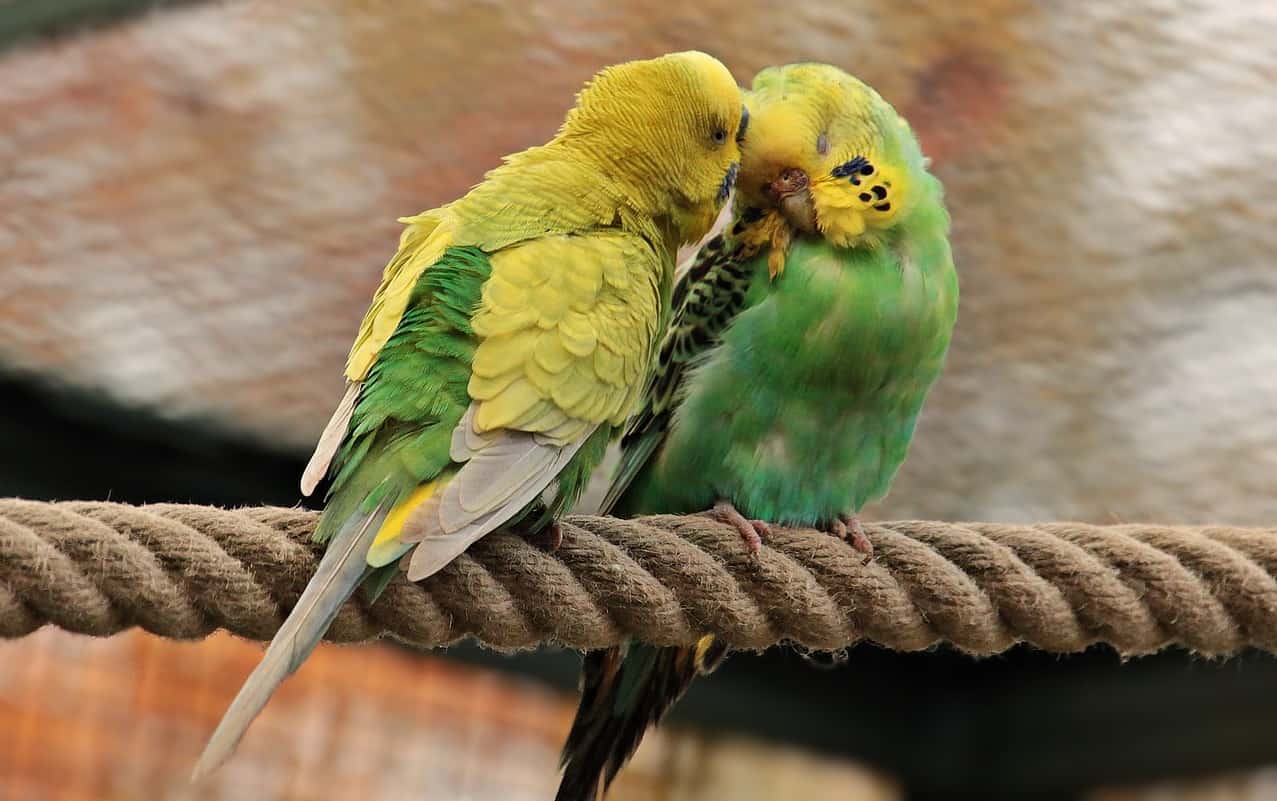
When we made love, I thought of nothing but the parakeets. They were four floors below in Samantha’s study. I feared they were starving. I pictured the serrated edge of a beak, wings, and claws.
As David finished, it came as a relief and for a moment my anxieties subsided. But the birds remained down there, demanding my attention. This was late August, and by then my carefree summer neared its close.
We lay on my single bed, in the attic room. It was humid, and the evening sun picked out floating dust, like prancing midges, clinging to us both. I longed to go downstairs, to see to the parakeets. I tried to tell David all this as he zipped up his trouser fly, but he took no notice.
“Why are you anxious?” he asked. “Samantha’s kept birds for years; she knows how to look after them.”
David didn’t worry about me. But he never worried about anything. He was a force, sweeping along through life. He was the youngest partner in Allen and Ovary, and it was easy to see why. Whenever he faced a problem, he’d marshal through to a solution. Never better or worse than it’s alternative but advocated with such easy confidence that none could refuse him. It was the same when we first made love. He propositioned me as though explaining a simple equation. He found me attractive, like a young milkmaid, he said. And he could see I liked him as well.
To me this seemed true enough, and I lacked the courage to disagree. Perhaps this treats me too fairly, as though I was blameless and couldn’t push him away. After all, I sought adventure. I was young, and I wanted to take all the opportunities life could give me. I was hungry for the world and couldn’t bear the thought of holding back.
After David left, I lay alone in the dark, losing myself in my fears. Unable to sleep, the green image of the bird wandered through my mind.
For most of my time in the house I had very little to do with the parakeet. Samantha kept it in her study, in a silver cage, below a bookcase filled with Freud. But she introduced me a few weeks prior, sometime at the start of August. The first thing I noticed was its song. The bird held a simple lilting melody. There were no half notes, crescendos or tremolos. It was beautiful and pure, like untouched snow. Each note rose, straightforward, to some undefined joy. And then I saw it and understood. Beneath its feathered green belly, was a small fluffy brown ball – a single chick, bald with a gentle down. Two days old, Samantha told me.
“Now,” she said, “you must feed them one of these each day.” She showed me a small plastic pouch filled with grains. “Every day, and only this.” She spoke in a hurry and was already showing me the door. “And check they have enough water. Don’t worry about cleaning the cage, it’s been done.”
As an au pair, tasks of this nature were normal for me. Samantha and David both worked, so they needed someone for housekeeping and looking after Sebastian, their young son. I had left my school in France the previous year and decided I wasn’t clever enough for university. Instead, I created a narrative for myself, working abroad and meeting new people in unfamiliar places – that would be my life, and travelling my education.
Samantha was a practical woman. She had cigarette lines around her mouth, although she never smoked. At first, I didn’t notice anything wrong with her marriage to David. They didn’t laugh, and she spoke in short sentences, always with instructions or to relay arrangements. But I didn’t see this as unusual. With my own parents divorced, I’d never really known a functional relationship. So, I accepted things as they were, never questioning or thinking too deeply.
Gradually, the situation began to change around the house. As well as feeding the parakeets, my tasks became more practical. I varnished the floors and repainted the terrace. Samantha changed too. She started working from home. I told myself she was busy – there was talk of an important case and she made notes and drafted emails late into the night.
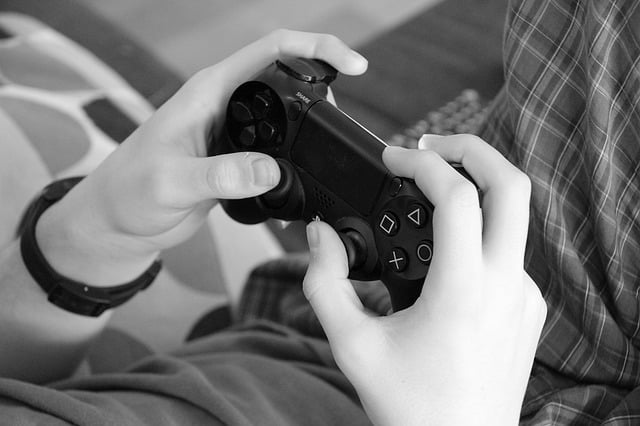 She stopped asking me how I was. Instead, she conveyed instructions without leaving her desk. She was precise and economical, as though she were instructing a virtual assistant, her household Alexa. “Morning,” she called to me one day. I stood in the hallway, listening. “I don’t want you taking Sebastian on any more trips. I want him inside the house. With me.”
She stopped asking me how I was. Instead, she conveyed instructions without leaving her desk. She was precise and economical, as though she were instructing a virtual assistant, her household Alexa. “Morning,” she called to me one day. I stood in the hallway, listening. “I don’t want you taking Sebastian on any more trips. I want him inside the house. With me.”
It was the summer holidays and she cancelled his tennis lessons. She brought in a beanbag, to keep him by her feet while she worked. She gave him a handheld game console to keep him quiet.
As I washed the dishes, and undertook my chores, I kept thinking of the parakeets. The portions I gave felt so meager, a single sachet into their miniature porcelain bowl. The gaps between the grains left little white spaces. The mother always let the chick eat first, but they always seemed so keen, as though they had been waiting all day for the ration. I told myself this was normal, and I was just imagining it. But I was only repressing my fear, and the question rolled through my mind on a loop, like an old cassette tape. Do they have enough food? It never stopped pressing at me.
Eventually, I decided to ask Samantha. It was the afternoon and as I fed the parakeets, I said, ”Sam, are you sure this is the right amount? Shouldn’t we give them two sachets? You know, for two birds?”
Samantha cradled her head in her hands, as she stared at her work. There was a long silence. I knew she had heard me, and she looked as though she was searching for something on the pages of her book. But she was still, and her eyes didn’t move. After a while, she said in a quiet voice,
“Are you feeling anxious?”
“No,” I garbled.
She didn’t look up, instead she sighed, “please follow the instructions I’ve given you.”
“Ok,” I said, “it’s just –“
“That will be all. Leave me to work now.”
I turned away and walked to the door of the study. Sebastian sat with his game and looked up at me with wet eyes. I thought I saw a plea in them. He wanted to play, to explore with me again. The shadow of the early summer lay between us, the trips to the British Museum, and the adventure to find Cleopatra’s needle on the Thames. I wanted to reach out to him, pretend to fire a pistol, or tickle him like a lion. But instead I said nothing. I touched his hand gently, and I left the room.
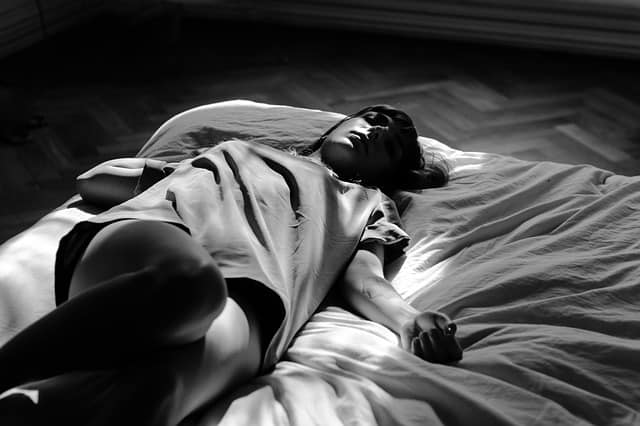 At night, I lay on my bed in the attic room, surrounded by my life’s detritus. My pants remained where I had dropped them, surrounded by tissues, scrunched and dry. The air was thick and black flies had fallen into the faded carpet. I hadn’t had a period in over eight weeks, and I felt my blood pumping through my head, pushing at my sinuses. I felt it was hemmed within me, a warm metallic heat like a primordial soup, unable to escape.
At night, I lay on my bed in the attic room, surrounded by my life’s detritus. My pants remained where I had dropped them, surrounded by tissues, scrunched and dry. The air was thick and black flies had fallen into the faded carpet. I hadn’t had a period in over eight weeks, and I felt my blood pumping through my head, pushing at my sinuses. I felt it was hemmed within me, a warm metallic heat like a primordial soup, unable to escape.
I lay awake for hours, belly faced up and too hot to sleep. The birds dogged my thoughts, and my mental images morphed and changed. A single yellow eye, leered at me through the dark, blurred and beyond my reach. It became a flapping pouch, a bill with oversized skin, struggling to swallow.
David’s visits were different. He had become more frantic. He fumbled with my bra and spoke in hurried whispers. But he was hungry, and he was always pushing forwards, towards the conclusion so he could leave.
“You were just lying there,” he said afterwards. “Were you thinking about those birds again?” But he didn’t wait for an answer. Instead, he shook his head, pulled on his socks and left. I was alone again. Awake, and in the dark.
More days passed, and I noticed new changes in the parakeets. The chick’s down had started to thin, and the shoots of green feathers appeared on the crest of its neck. The mother had stopped singing. Instead, she squawked when I entered the study. Samantha would click her tongue and watch me until I finished, making sure I did everything the way she wanted. I had to find some way to increase their feed. But as time went by Samantha left the study less often. She’d make infrequent trips to the toilet, but would be back again, typing away at her computer and reading through her notes. She never went out to see friends or pick up groceries. Instead, we had our shopping delivered. Samantha would say, “just after this case,” as though the situation was only transitory, and would be back to normal before long.
Eventually, I seized a chance. Sebastian was becoming restless. He had started to lose interest in his game, and he wandered through the hallway, poking his head into rooms. I was dusting cabinets in the drawing room when he caught my eye. He walked in at a right angle, but with his body and his hands facing me, as though he were a hieroglyphic.
“Im-o-tep,” he chanted, and then laughed and ran towards me. “Take me outside,” he said. “Let’s play in the garden.” He pointed through the Georgian patio doors towards the green lawns. “I haven’t been out in ages.”
“I know,” I said, “nor have I.”
Samantha appeared. She swept over, all consoling, and told him she’d put Star Wars on for him to watch. I had already walked out of the room by then, and it occurred to me Samantha would be a few moments – she had to find the right DVD. So, I walked away from them, and headed down the hallway towards the study and the parakeets. The mother squawked as I entered. She made such a racket. I knew I had to be quick, and I grabbed two sachets and tore them open.
“What are you doing?” Samantha asked from the doorway. She had followed me in.
“Nothing,” I said. “Just feeding the parakeets.”
“You’ve already fed them today.”
“I know, but-“
“I told you, one sachet per day.” I stood, frozen. “Leave,” said Samantha in a quiet voice. And I did, putting the half-opened sachets back in their container. I went up to the attic and slunk onto my bed. My room had a single window; it was far above, a skylight in the rafters. I realized I couldn’t remember the last time I’d left the house. I guessed it was a few weeks, when I drove Sebastian to a tennis lesson.
More days passed like this. I started to dread David’s visits. I’d listen out for his footsteps, a slow creaking, as he crept up the attic stairs. But they began to peter out, and he saw me less and less.
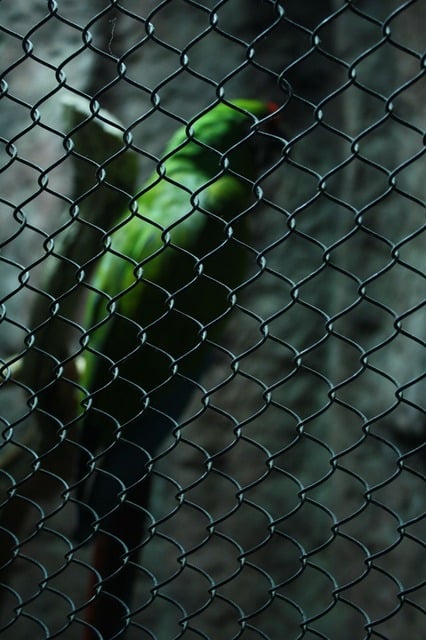 The parakeets’ agitation grew. The mother would fly forwards when she saw me, her body thwacking into the cage. She’d flap her wings, as though trying to reach me, and I’d hear light claps, from cartilage against metal bars.
The parakeets’ agitation grew. The mother would fly forwards when she saw me, her body thwacking into the cage. She’d flap her wings, as though trying to reach me, and I’d hear light claps, from cartilage against metal bars.
Samantha stood up now as I fed them. She peered over my shoulder, watching what I was doing, like a prison guard. I was barely sleeping, and my mind felt light and dizzy as though dislocated from my head. I longed to go outdoors, and yet I couldn’t bring myself to leave, as though I lacked the strength to break free from the house.
The nights became hotter. Trapped in my worries, I sensed the birds glaring at me in the humid dark of my room. Nothing in my mind made sense. I felt only impressions, vague and undefined – a great flapping bill, yellow eyes, and a squelching, liquid hunger. And then always a creature, struggling to swallow, its throat blocked.
I went on this way for a while longer, until on the final evening of August, there was a conclusion. Like a circadian clock, so life turned onwards. I often wonder about that night. I think about what I could have done differently, and had things not panned out as they did – who would I have become?
It started as I lay in the dark, attempting to sleep. I was the most anxious I’d been. I tried to rest my palms flat against my belly, but my finger kept tapping against my thumb. That day, I’d noticed a new change in the parakeets. When I entered the study, there was no squawk from the mother. She sat hunched in a corner, her chest heaving, with a half-whistled breath. And the chick was different too. When I emptied the sachet into the bowl, it didn’t bounce to it as normal, no quick, desperate dash. Instead, the chick was slow, its twig legs stumbling. It looked lethargic, almost drunk, like it might keel over at any moment.
I imagined it falling to the floor of the cage. I jerked over in my bed, trying to block out these thoughts, but as I lay in the dark, I sensed a sharp green movement, a confetti of down and feathers. I pictured claws scratching red welts – the mother burying her head in flesh, a great lump in her neck, undulating, trying to secrete fluid, attempting to swallow.
It was then that I realized what would happen to the chick. After all, what can keep hunger at bay? The mother had a competing series of instincts and she’d resisted one set for weeks, but she’d been driven too far. I’d seen it. I’d watched it happen. It was nature. As I thought this, I tried to keep my forefinger and thumb from pinching at my temple. I couldn’t stand it. I felt I knew what was going to happen; I’d enter the study one day, and I’d see only the larger bird, alone on its perch.
My room was sweet and musty, and I was sweating. I thought of the blood, still hemmed below my abdomen, and then my own mother, all alone in Rouen. I decided to act. In my delirium, my choice was only half-conscious, as though I was fleeing myself, escaping my mind. I’d not tried this before, for fear of Samantha, but now I felt forced. I slid my legs over the end of my bed, and stood, hunched in my room. I pulled on my nightie and crept down the attic stairs towards the third-floor landing. I kept moving downwards through the silent, empty house. I could hear only the creaking of Victorian pipes, and the dong of the pendulum clock, offset against my footsteps. Eventually I arrived at the study door. I touched open the handle and pushed against the smooth gloss wood. It didn’t move. I tried it again. Nothing. It was locked.
I kept on rocking the door, banging my fists against it, wanting to cry out. I stood there for minutes, simultaneously hoping and fearing that someone would wake. After a time, I crept back up to my bedroom. I couldn’t understand. Why did Samantha need to lock the study? In my bed, I drifted in and out of consciousness, picturing infanticide, and dreading the dawn.
I went downstairs early the next day and paused at the foot of the staircase. It was a cool fresh morning and for the first time in months there was light dew spreading across the lawns. I remember feeling nervous. But somehow, I felt a stillness, the beginnings of calm, as though I knew what I was about to see.
In the study, everything was the same. Samantha reclined in her chair before a half-eaten bowl of porridge. Sebastian, in pajamas, was sprawled on the beanbag with a comic. I walked into the room and looked to the cage. I saw a frail green lump at its base. I moved closer for a better look. Lying still and evenly spaced apart, as though placed by some caring hand, were the two parakeets. They were facing one another. Mother and chick.
Samantha looked at me. She stroked the branching follicles of her sandy hair and pulled them gently from her eyes. ”I think you were right. We weren’t feeding them enough,” she said.
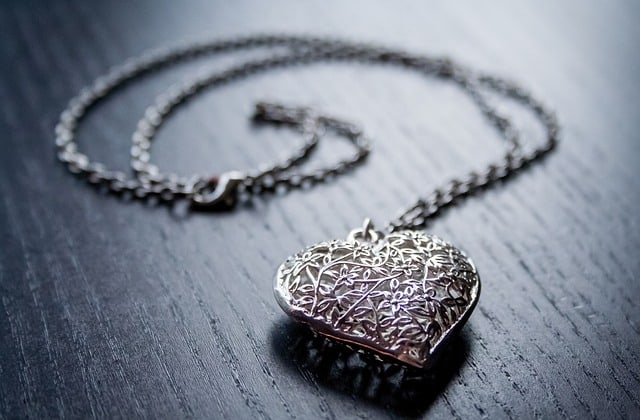 It took me a moment in my room before I decided to pack my leather satchel. I gathered pants and dresses from the floor and cleaned away the tissues and dead flies that clung to the carpet. I threw away the few things David had given me – a silver heart, and a love poem he’d torn from a volume in his library. I made the bed, and then reached up and opened the window in the rafters. Fresh air poured in.
It took me a moment in my room before I decided to pack my leather satchel. I gathered pants and dresses from the floor and cleaned away the tissues and dead flies that clung to the carpet. I threw away the few things David had given me – a silver heart, and a love poem he’d torn from a volume in his library. I made the bed, and then reached up and opened the window in the rafters. Fresh air poured in.
I walked down to the study, and without a word to Samantha, opened the doors of the cage. The birds were light in my hands, like feathered toys, and I wrapped them in a plain white dishtowel I’d taken from the kitchen cupboard. I entered the garden for the first time in weeks, my white bundle pressed to my chest. The cool air pulled at my jacket and rustled the tops of trees. There was a distant rumble of traffic, and quieter still, the irregular cries of children playing in a garden up the street. I found a spade, discarded besides some conifers, and then began to dig. Dried through from the summer, the sod came up in clumps. Before long, I had a hole deep enough to keep the birds safe from foxes. I paused and looked towards the house. Samantha and Sebastian were both there, watching through the glass of the patio doors, Samantha’s palms resting on her son’s shoulders.
With one hand on my belly, I lowered my white bundle into the pit and covered it in soil. Afterwards, I prayed in French, and then gathered up my leather satchel. Without another look back, I walked to the end of the lawn, and out through the garden gate.
–
 About the Author – George Ayliffe
About the Author – George Ayliffe
George Ayliffe graduated from the University of Warwick in 2014, with a joint honours degree majoring in Philosophy. George was recently long listed for the RSL’s V.S Pritchett prize. His stories have featured in Meat for Tea: The Valley Review, and are forthcoming in the Didcot Writers Anthology. George Ayliffe works for an oil company and lives in Gospel Oak, North London.
–
–
Did you like “Swallowed”‘ by George Ayliffe? Then you might also like:
The Window
Target Practice
What I Remember from 5th & San Pedro